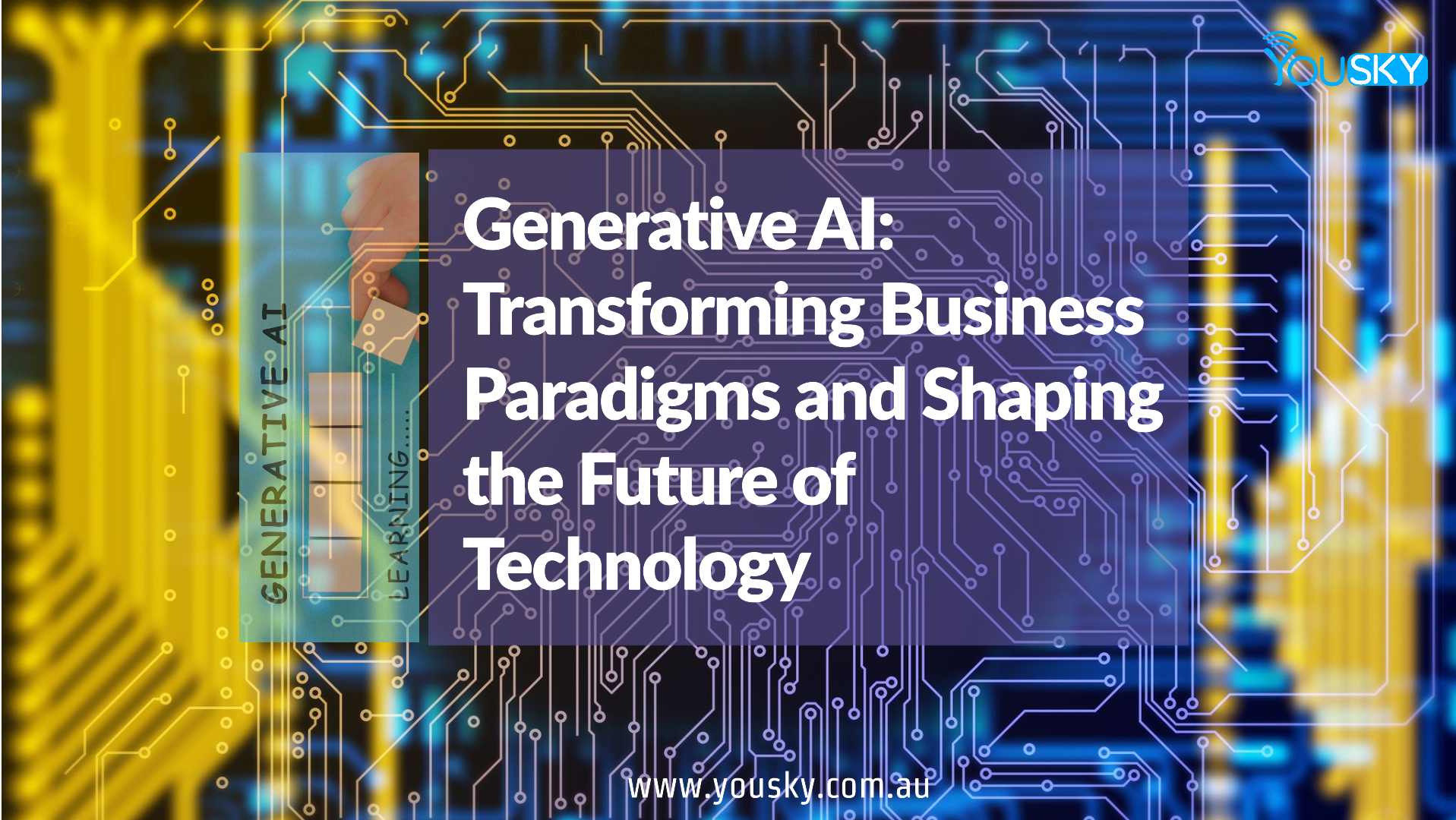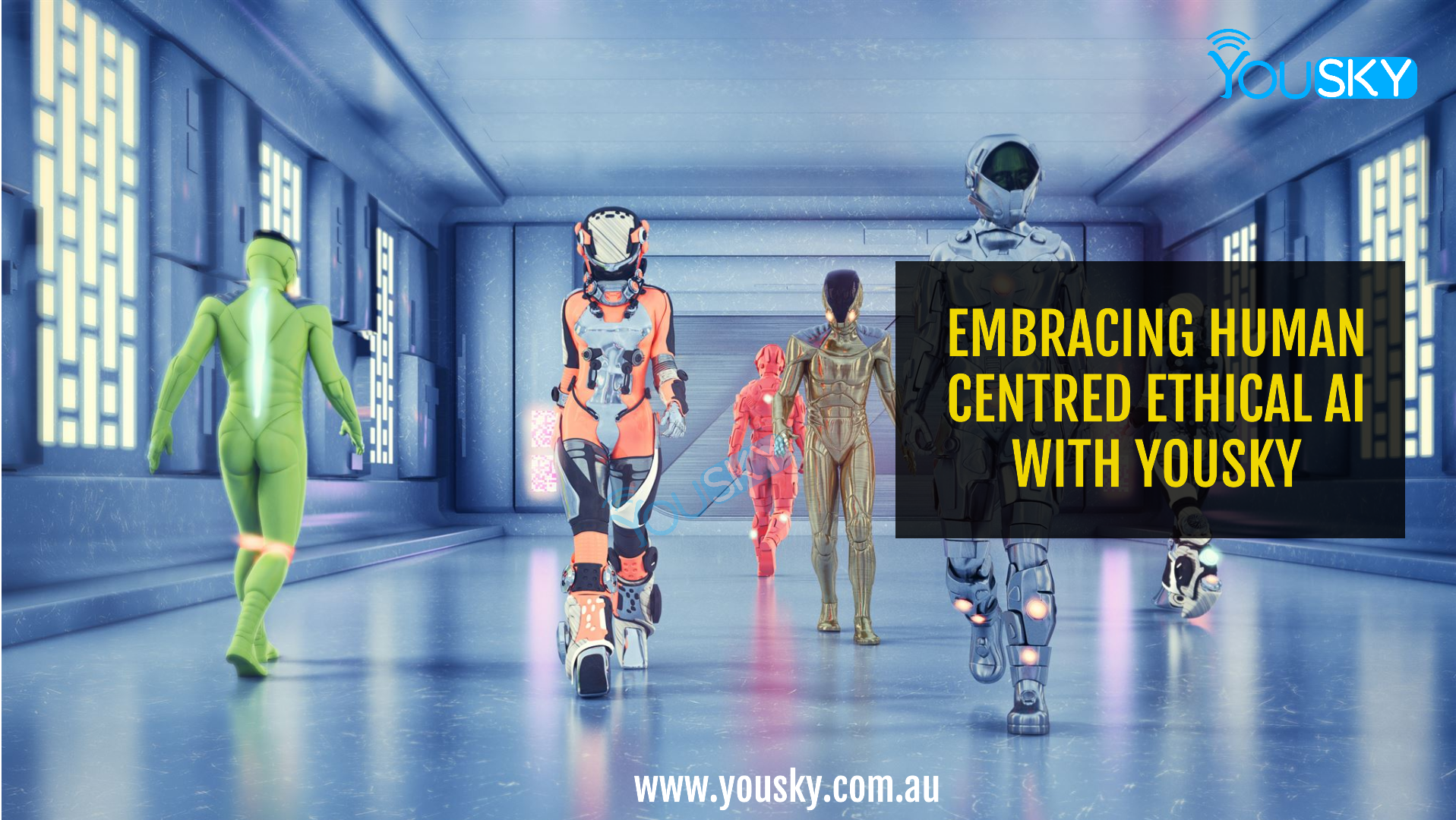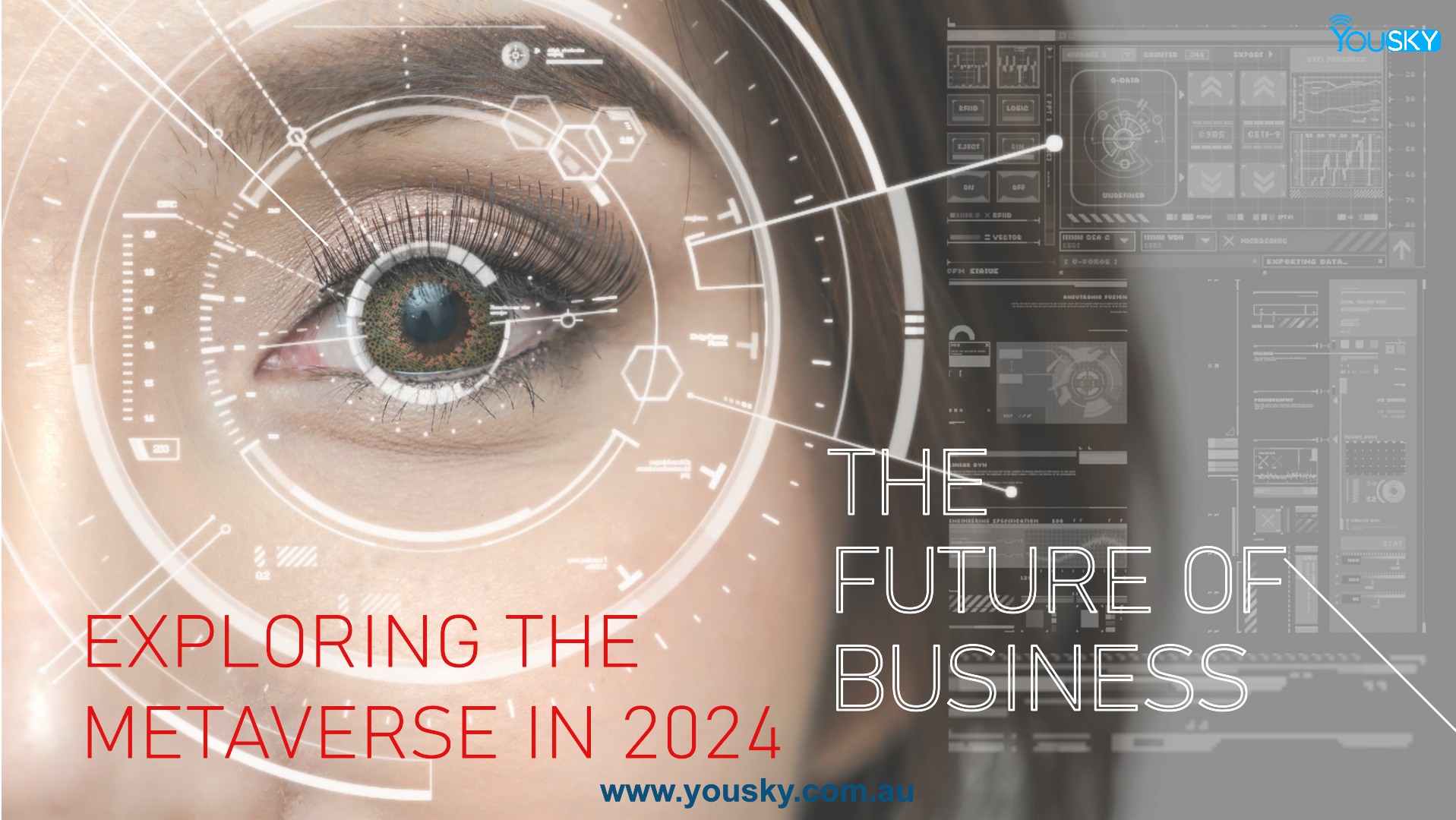
The advent of generative AI marks a revolutionary chapter in the realm of technology and business. This cutting-edge technology, encompassing machine learning models capable of creating new content, is not just a technological advancement; it’s a paradigm shift that is redefining how businesses operate, innovate, and compete.
The Emergence of Generative AI
Generative AI models, such as OpenAI’s GPT-4 and DALL-E, have showcased an unprecedented ability to generate human-like text and create novel images from textual descriptions. These capabilities extend beyond mere novelty; they signify a fundamental shift in the creative and operational processes across industries. Unlike traditional AI, which primarily enhances and automates repetitive tasks, generative AI innovates, designs, and solves complex problems by producing original content and solutions.
Transforming Business Operations
Generative AI is revolutionizing various aspects of business operations:
1. Content Creation and Marketing: Businesses can now leverage generative AI to produce high-quality content at scale. From drafting emails and generating marketing copy to creating personalized customer interactions, AI-powered tools enhance creativity and efficiency. This not only reduces costs but also allows for a more agile and responsive marketing strategy.
– Efficiency and Cost Reduction: By automating the content creation process, businesses can significantly reduce the time and cost associated with producing marketing materials. AI tools can quickly generate vast amounts of content, enabling marketing teams to focus on strategy and creative direction rather than mundane tasks.
– Personalization at Scale: Generative AI can tailor content to individual customer preferences and behaviors, creating a more engaging and personalized experience. This level of customization was previously unattainable at scale, allowing businesses to connect with their audience on a deeper level.
2. Product Design and Development: Generative AI aids in designing new products by simulating and optimizing designs before actual production. This accelerates the product development cycle and allows for more innovative and diverse offerings. For example, AI can generate multiple design prototypes based on specific criteria, providing businesses with a broader range of options to choose from.
– Accelerated Innovation: By generating numerous design alternatives and simulating performance outcomes, generative AI speeds up the innovation process. This allows companies to experiment with new ideas and bring products to market faster than ever before.
– Cost-Effective Prototyping: Traditional prototyping can be expensive and time-consuming. Generative AI reduces these costs by providing virtual prototypes that can be refined and tested digitally, minimizing the need for physical prototypes until the final stages of development.
3. Customer Service: AI-driven chatbots and virtual assistants provide instant, accurate, and personalized responses to customer queries, enhancing customer satisfaction and reducing the burden on human customer service representatives. These AI systems continually learn and improve, ensuring that customer interactions are increasingly effective and efficient.
– 24/7 Availability: Unlike human agents, AI chatbots can provide customer support around the clock, ensuring that customers receive assistance whenever they need it. This improves customer satisfaction and loyalty.
– Scalability: AI-driven customer service solutions can handle a large volume of inquiries simultaneously, making it easier for businesses to scale their support operations without a proportional increase in costs.
4. Data Analysis and Decision Making: Generative AI can analyze vast amounts of data to identify trends, predict outcomes, and generate actionable insights. This capability transforms decision-making processes, making them faster, data-driven, and more accurate. Businesses can forecast market changes, optimize operations, and identify new opportunities with unprecedented precision.
– Predictive Analytics: By analyzing historical data and identifying patterns, generative AI can make accurate predictions about future trends and behaviors. This allows businesses to anticipate market changes and adjust their strategies proactively.
– Enhanced Business Intelligence: Generative AI can synthesize complex data sets into clear, actionable insights, making it easier for executives to make informed decisions. This enhances the overall strategic planning process and drives better business outcomes.
Shaping the Future of Technology
The influence of generative AI extends beyond immediate business applications, heralding a future where technology is more intuitive, creative, and integrative.
1. Enhanced Human-AI Collaboration: Generative AI fosters a new era of collaboration between humans and machines. AI systems can augment human capabilities, providing creative suggestions, generating hypotheses, and even identifying potential solutions to complex problems. This symbiotic relationship enhances human creativity and problem-solving skills, driving innovation across various fields.
– Augmented Creativity: AI can serve as a creative partner, offering novel ideas and perspectives that humans might not consider. This collaboration can lead to groundbreaking innovations and unique solutions to complex challenges.
– Intelligent Problem-Solving: By leveraging the computational power of AI, humans can tackle complex problems more efficiently. AI can analyze vast data sets and propose solutions based on patterns and insights that might be missed by human analysts.
2. Personalized User Experiences: The future of technology will see increasingly personalized user experiences driven by generative AI. From tailored educational content to customized healthcare solutions, AI will enable hyper-personalization, ensuring that products and services are precisely aligned with individual needs and preferences.
– Education: Generative AI can create personalized learning paths based on individual student needs, preferences, and learning styles. This ensures that each student receives an education tailored to their strengths and weaknesses, enhancing learning outcomes.
– Healthcare: In healthcare, generative AI can develop personalized treatment plans based on a patient’s medical history, genetic information, and lifestyle. This personalized approach improves the effectiveness of treatments and enhances patient care.
3. Ethical and Responsible AI: As generative AI becomes more integrated into society, there is a growing emphasis on developing ethical and responsible AI systems. Future advancements will likely focus on enhancing transparency, fairness, and accountability in AI algorithms, ensuring that the benefits of AI are widely and equitably distributed.
– Bias Mitigation: Efforts are underway to develop AI systems that are free from biases and ensure fair treatment of all individuals. This includes improving the diversity of training data and implementing algorithms designed to detect and mitigate bias.
– Transparency and Accountability: As AI systems become more complex, there is a need for greater transparency in how they operate. This includes developing explainable AI models that can provide insights into their decision-making processes, ensuring accountability and building trust with users.
4. New Business Models: The capabilities of generative AI will lead to the emergence of new business models. Subscription-based services for AI-generated content, AI-as-a-Service (AIaaS) platforms, and marketplaces for AI-generated assets are just a few examples of how businesses can monetize generative AI.
– AI-as-a-Service (AIaaS): Companies can offer generative AI capabilities as a service, allowing other businesses to integrate AI into their operations without the need for extensive in-house expertise. This model democratizes access to advanced AI technologies.
– Marketplaces for AI-generated Content: Platforms that allow users to buy and sell AI-generated content, such as images, videos, and text, are likely to emerge. These marketplaces will enable creators to monetize their AI-generated works and provide businesses with a new source of high-quality content.
Conclusion
Generative AI is not just a technological innovation; it is a transformative force that is reshaping the business landscape and the future of technology. By automating creative processes, enhancing decision-making, and fostering new forms of human-AI collaboration, generative AI is driving unprecedented levels of efficiency, creativity, and personalization in business operations. As we move forward, the continued evolution of generative AI promises to unlock new potentials, creating a future where technology is seamlessly integrated into every facet of our lives, enhancing our capabilities and enriching our experiences. The businesses that embrace and adapt to this paradigm shift will be the ones that lead the way in the new AI-driven economy.
The future of generative AI holds immense potential, and its impact on business and technology will continue to grow. By staying ahead of the curve and leveraging the transformative power of generative AI, businesses can position themselves for success in an increasingly AI-driven world.


